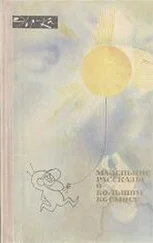These inscribed shapes of the poet’s world,
‘Forms more real than living man,
Nurslings of immortality,’
were, no doubt, the thoughts and spirit-strivings which had come to him in the dead of night, when he could let himself go and have no fear of the frost of criticism. No doubt they had often been written up hastily by the light of the moon, the rays of the lamp, in the blue-gray dawn, in full daylight perhaps never. And now her hair was dragging where his arm had lain when he secured the fugitive fancies; she was sleeping on a poet’s lips, immersed in the very essence of him, permeated by his spirit as by an ether.
While she was dreaming the minutes away thus, a footstep came upon the stairs, and in a moment she heard her husband’s heavy step on the landing immediately without.
‘Ell, where are you?’
What possessed her she could not have described, but, with an instinctive objection to let her husband know what she had been doing, she slipped the photograph under the pillow just as he flung open the door with the air of a man who had dined not badly.
‘O, I beg pardon,’ said William Marchmill. ‘Have you a headache? I am afraid I have disturbed you.’
‘No, I’ve not got a headache,’ said she. ‘How is it you’ve come?’
‘Well, we found we could get back in very good time after all, and I didn’t want to make another day of it, because of going somewhere else tomorrow.’
‘Shall I come down again?’
‘O, no. I’m as tired as a dog. I’ve had a good feed, and I shall turn in straight off. I want to get out at six o’clock tomorrow if I can. . I shan’t disturb you by my getting up; it will be long before you are awake.’ And he came forward into the room.
While her eyes followed his movements, Ella softly pushed the photograph further out of sight.
‘Sure you’re not ill?’ he asked, bending over her.
‘No, only wicked!’
‘Never mind that.’ And he stooped and kissed her. ‘I wanted to be with you tonight.’
Next morning Marchmill was called at six o’clock; and in waking and yawning he heard him muttering to himself. ‘What the deuce is this that’s been crackling under me so?’ Imagining her asleep he searched round him and withdrew something. Through her half-opened eyes she perceived it to be Mr. Trewe.
‘Well, I’m damned!’ her husband exclaimed.
‘What, dear?’ said she.
‘O, you are awake? Ha! ha!’
‘What do you mean?’
‘Some bloke’s photograph – a friend of our landlady’s, I suppose. I wonder how it came here; whisked off the mantelpiece by accident perhaps when they were making the bed.’
‘I was looking at it yesterday, and it must have dropped in then.’
‘O, he’s a friend of yours? Bless his picturesque heart!’
Ella’s loyalty to the object of her admiration could not endure to hear him ridiculed. ‘He’s a clever man!’ she said, with a tremor in her gentle voice which she herself felt to be absurdly uncalled for. ‘He is a rising poet – the gentleman who occupied two of these rooms before we came, though I’ve never seen him.’
‘How do you know, if you’ve never seen him?’
‘Mrs. Hooper told me when she showed me the photograph.’
‘O, well, I must up and be off. I shall be home rather early. Sorry I can’t take you today dear. Mind the children don’t go getting drowned.’
That day Mrs. Marchmill inquired if Mr. Trewe were likely to call at any other time.
‘Yes,’ said Mrs. Hooper. ‘He’s coming this day week to stay with a friend near here till you leave. He’ll be sure to call.’
Marchmill did return quite early in the afternoon; and, opening some letters which had arrived in his absence, declared suddenly that he and his family would have to leave a week earlier than they had expected to do – in short, in three days.
‘Surely we can stay a week longer?’ she pleaded. ‘I like it here.’
‘I don’t. It is getting rather slow.’
‘Then you might leave me and the children!’
‘How perverse you are, Ell! What’s the use? And have to come to fetch you! No: we’ll all return together; and we’ll make out our time in North Wales or Brighton a little later on. Besides, you’ve three days longer yet.’
It seemed to be her doom not to meet the man for whose rival talent she had a despairing admiration, and to whose person she was now absolutely attached. Yet she determined to make a last effort; and having gathered from her landlady that Trewe was living in a lonely spot not far from the fashionable town on the Island opposite, she crossed over in the packet from the neighboring pier the following afternoon.
What a useless journey it was! Ella knew but vaguely where the house stood, and when she fancied she had found it, and ventured to inquire of a pedestrian if he lived there, the answer returned by the man was that he did not know. And if he did live there, how could she call upon him? Some women might have the assurance to do it, but she had not. How crazy he would think her. She might have asked him to call upon her, perhaps; but she had not the courage for that, either. She lingered mournfully about the picturesque seaside eminence till it was time to return to the town and enter the steamer for recrossing, reaching home for dinner without having been greatly missed.
At the last moment, unexpectedly enough, her husband said that he should have no objection to letting her and the children stay on till the end of the week, since she wished to do so, if she felt herself able to get home without him. She concealed the pleasure this extension of time gave her; and Marchmill went off the next morning alone.
But the week passed, and Trewe did not call.
On Saturday morning the remaining members of the Marchmill family departed from the place which had been productive of so much fervor in her. The dreary, dreary train; the sun shining in moted beams upon the hot cushions; the dusty permanent way; the mean rows of wire – these things were her accompaniment: while out of the window the deep blue sea-levels disappeared from her gaze, and with them her poet’s home. Heavy-hearted, she tried to read, and wept instead.
Mr. Marchmill was in a thriving way of business, and he and his family lived in a large new house, which stood in rather extensive grounds a few miles outside the midland city wherein he carried on his trade. Ella’s life was lonely here, as the suburban life is apt to be, particularly at certain seasons; and she had ample time to indulge her taste for lyric and elegiac composition. She had hardly got back when she encountered a piece by Robert Trewe in the new number of her favorite magazine, which must have been written almost immediately before her visit to Solentsea, for it contained the very couplet she had seen penciled on the wallpaper by the bed, and Mrs. Hooper had declared to be recent. Ella could resist no longer, but seizing a pen impulsively, wrote to him as a brother-poet, using the name of John Ivy, congratulating him in her letter on his triumphant executions in meter and rhythm of thoughts that moved his soul, as compared with her own brow-beaten efforts in the same pathetic trade.
To this address there came a response in a few days, little as she had dared to hope for it – a civil and brief note, in which the young poet stated that, though he was not well acquainted with Mr. Ivy’s verse, he recalled the name as being one he had seen attached to some very promising pieces; that he was glad to gain Mr. Ivy’s acquaintance by letter, and should certainly look with much interest for his productions in the future.
There must have been something juvenile or timid in her own epistle, as one ostensibly coming from a man, she declared to herself; for Trewe quite adopted the tone of an elder and superior in this reply. But what did it matter? He had replied; he had written to her with his own hand from that very room she knew so well, for he was now back again in his quarters.
Читать дальше
Конец ознакомительного отрывка
Купить книгу












